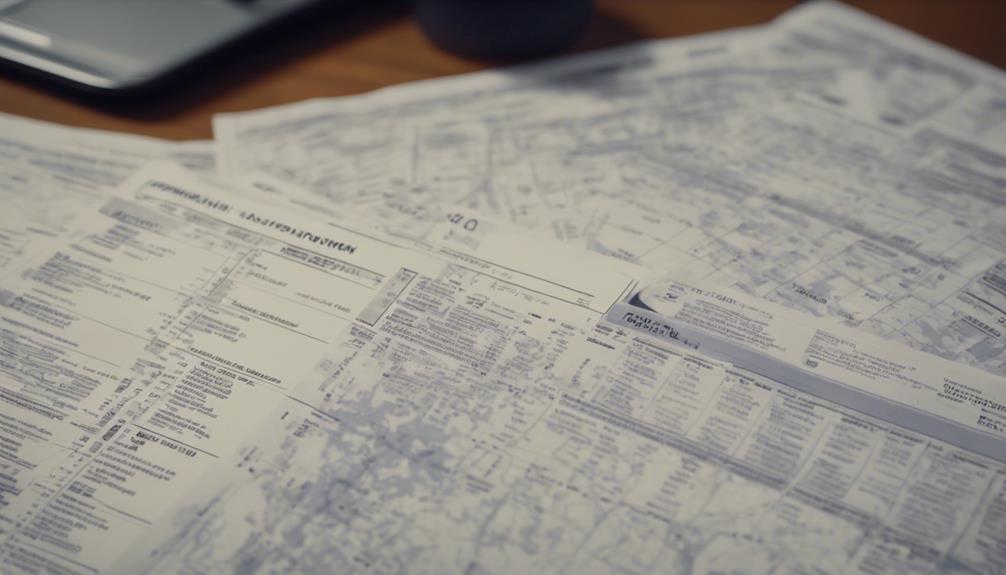Ensuring US labor law compliance for non-residents is a nuanced process that demands meticulous attention to detail. From navigating the intricacies of 20 CFR 655 to understanding the labor certification procedures outlined in 20 CFR 656, the landscape can be complex.
However, by grasping the essential steps for compliance, including proper documentation and addressing tax obligations, you can successfully navigate the regulatory framework.
Stay tuned to uncover key insights into how to effectively ensure your non-resident workforce's adherence to US labor laws.
Key Takeaways
- Understanding visa requirements and limitations is crucial for non-residents' labor law compliance.
- Compliance with US labor laws ensures a fair and just work environment for all employees.
- Adhering to tax regulations and determining residency status accurately minimizes penalties.
- Seeking legal advice and regular training on labor laws help navigate complexities and ensure compliance.
Scope of US Labor Laws for Non-Residents
When working in the U.S. as a non-resident, it's crucial to understand the scope of US labor laws that apply to you. These laws, encompassed under Labor Standards and Title VII, are designed to protect your rights in the workplace.
Title VII specifically prohibits workplace discrimination based on race, color, religion, sex, and national origin. This means that as a non-resident, you're entitled to a work environment free from discrimination or harassment.
Additionally, U.S. labor laws establish minimum wage requirements and workplace safety regulations that all employees, including non-residents, must adhere to. Ensuring compliance with these standards not only safeguards your well-being but also fosters a fair and just work environment for everyone.
Exemptions and Limitations for Non-Residents

When working in the U.S. as a non-resident, understanding the exemptions and limitations based on your visa category is crucial. Visa requirements for work and tax implications for non-residents can significantly impact your compliance with U.S. labor laws.
Ensuring you're aware of these factors will help you navigate the complexities of U.S. labor law as a non-resident.
Visa Requirements for Work
To ensure compliance with US labor laws, you must carefully navigate the visa requirements for work, including exemptions and limitations that govern your legal status in the country.
Non-residents working in the U.S. typically need a work visa, like an H-1B for specialty occupations or an L-1 for intra-company transfers. Some countries have visa exemptions under agreements like the Visa Waiver Program, allowing short-term business visits without a work visa.
It's crucial to adhere to visa limitations, such as staying within the authorized period and working only for the sponsoring employer. Violating these requirements can have serious consequences, like deportation and future inadmissibility.
Understanding and complying with visa regulations are essential to maintaining your legal status and work authorization in the U.S.
Tax Implications for Non-Residents
For non-residents working in the U.S., understanding the tax implications, exemptions, and limitations is crucial to ensure compliance with federal income tax laws. Non-residents may be subject to federal income tax on income connected with a U.S. trade or business. However, tax treaties between the United States and their home country could provide exemptions.
The U.S. Internal Revenue Service (IRS) offers guidance on tax implications for non-residents through Publication 519. Tax withholding rates vary based on visa status and income type. It's essential for non-residents to determine their tax residency status accurately, as failure to comply with U.S. tax laws may lead to penalties.
Ensuring adherence to tax regulations will help non-residents navigate the complexities of the United States tax system efficiently.
Key Steps for Labor Law Compliance

Implementing effective measures for labor law compliance is essential for non-residents working abroad to navigate the complexities of US regulations. To ensure adherence to both US laws and local labor regulations, it's crucial to develop policies that align with the requirements of both jurisdictions.
Providing regular training sessions for non-resident employees on US labor law requirements can help them understand their rights and obligations. Seeking legal advice from experts in US labor law can assist in navigating potential conflicts between US and foreign labor laws, ensuring a harmonious working environment.
Additionally, it's essential to conduct regular reviews of employment practices to guarantee ongoing compliance with US labor laws and make any necessary adjustments promptly. By taking these key steps, non-residents can uphold labor law compliance, fostering a positive work environment and mitigating the risks associated with non-compliance.
Understanding Work Authorization Requirements

Understanding the intricate work authorization requirements is crucial for non-residents seeking to legally work in the U.S. As a non-resident, you must obtain the necessary work authorization, such as an employment visa, to ensure compliance with U.S. labor laws.
Various visa categories exist, each with specific criteria; for instance, the H-1B visa is for specialty occupations, while the L-1 visa is for intra-company transfers. Your employer will need to verify your work authorization by completing Form I-9, known as Employment Eligibility Verification.
It's essential to adhere to these requirements, as working without proper authorization can lead to severe consequences, including deportation. By complying with work authorization regulations, you not only avoid legal penalties but also contribute to maintaining a lawful workforce.
Stay informed about the specific requirements related to your visa status to navigate the U.S. labor market successfully and securely as a non-resident.
Addressing Tax Obligations for Non-Residents

Determining your tax status as a non-resident working in the U.S. is crucial for complying with tax obligations and understanding potential exemptions. Here are some essential points to consider:
- Tax Status Determination: Your tax status as a non-resident is typically determined by the substantial presence test or your visa type. It's vital to establish this status correctly to fulfill your tax responsibilities.
- Impact of Tax Treaties: Tax treaties between the U.S. and other countries can significantly influence the tax obligations of non-residents. Familiarizing yourself with these treaties can help you navigate potential tax benefits.
- Filing Requirements: Non-residents may be required to file Form 1040NR or the simplified Form 1040NR-EZ to report their U.S. income and potentially claim tax benefits. Ensuring proper documentation and adherence to filing requirements is essential for compliance with U.S. tax laws.
Understanding these aspects, including tax treaties and the necessary forms, is essential for non-residents to manage their tax obligations effectively while working in the U.S.
Ensuring Proper Documentation for Compliance

Maintaining up-to-date work authorization documentation is essential for non-residents to ensure compliance with U.S. labor laws. Employment authorization documents, such as Form I-765, play a crucial role for non-residents working in the U.S. Compliance with visa requirements is paramount to avoid legal issues related to employment.
It's imperative for non-residents to keep their work authorization documentation current to guarantee continuous adherence to U.S. labor laws. Failure to possess and maintain the necessary documentation can lead to violations of both U.S. immigration and labor regulations.
By staying vigilant about your employment authorization and visa requirements, you demonstrate your commitment to following the laws that govern your work in the United States. Ensuring that your documentation is in order not only protects you from potential legal troubles but also fosters a sense of security and belonging in your professional endeavors.
Make sure to prioritize the upkeep of your work authorization papers to navigate the U.S. labor landscape successfully.
Conclusion
Now that you have navigated the complexities of US labor law compliance for non-residents, you're well-equipped to ensure smooth operations and avoid legal pitfalls.
But remember, the journey doesn't end here. Stay vigilant, stay informed, and stay compliant. Your dedication to following the regulations won't only protect your business but also pave the way for a successful and sustainable future.
Keep up the good work and watch your efforts yield fruitful results!